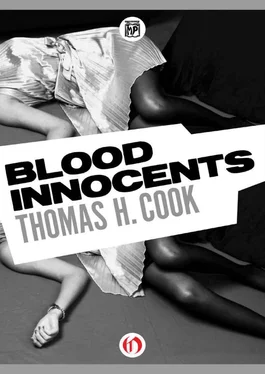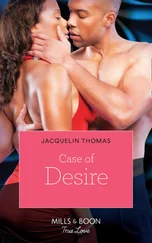Thomas Cook - Blood Innocents
Здесь есть возможность читать онлайн «Thomas Cook - Blood Innocents» весь текст электронной книги совершенно бесплатно (целиком полную версию без сокращений). В некоторых случаях можно слушать аудио, скачать через торрент в формате fb2 и присутствует краткое содержание. Жанр: Триллер, на английском языке. Описание произведения, (предисловие) а так же отзывы посетителей доступны на портале библиотеки ЛибКат.
- Название:Blood Innocents
- Автор:
- Жанр:
- Год:неизвестен
- ISBN:нет данных
- Рейтинг книги:5 / 5. Голосов: 1
-
Избранное:Добавить в избранное
- Отзывы:
-
Ваша оценка:
- 100
- 1
- 2
- 3
- 4
- 5
Blood Innocents: краткое содержание, описание и аннотация
Предлагаем к чтению аннотацию, описание, краткое содержание или предисловие (зависит от того, что написал сам автор книги «Blood Innocents»). Если вы не нашли необходимую информацию о книге — напишите в комментариях, мы постараемся отыскать её.
Blood Innocents — читать онлайн бесплатно полную книгу (весь текст) целиком
Ниже представлен текст книги, разбитый по страницам. Система сохранения места последней прочитанной страницы, позволяет с удобством читать онлайн бесплатно книгу «Blood Innocents», без необходимости каждый раз заново искать на чём Вы остановились. Поставьте закладку, и сможете в любой момент перейти на страницу, на которой закончили чтение.
Интервал:
Закладка:
“Did you know Miss McDonald very well?” Reardon asked. It felt incongruous, this litany of investigation on the steps of a church. On the sunny Brooklyn street cars went past. A boy walked past bouncing a rubber ball.
“I knew Patty all her life,” Father Perry said. “I baptized her.”
“You called her Patty?”
“Everyone did. I understand from her father that later on she started going by her other name. Lee.”
“Why was that?” Reardon asked.
Father Perry cleared his throat. He seemed to be trying to calculate what was proper for him to say and what to hold back. “Well, you see,” he said finally, “Patty had a lot of trouble in her life.”
“What kind of trouble?”
“Family trouble,” Father Perry admitted gently. He looked about hesitantly, as if assuring himself that he and Reardon were not being overheard. “Mostly what I see is the sin of gossip,” he said. “You hear so much sometimes that you come to think the walls must be giving up their secrets.”
“What kind of trouble was she having with her parents?” Reardon asked.
“Well, she wanted to go one way. They wanted her to go another way. That sort of thing.”
“What way?”
“Well, to tell you the truth, they wanted her to be just like them. It’s very common.” He spoke gently, kindly, like a man who had seen a great deal of distress in his life, none of it very original.
Reardon adopted Father Perry’s language. “What way did they want her to go?”
“They wanted her to be a family person.” Father Perry smiled faintly. “Blooming with child every ten months, inviting them over for the Saint Patrick’s Day feast or Christmas dinner, living like they lived, wanting what they wanted.”
Reardon nodded. “And what way did she want for herself?”
“She wanted to get out of Brooklyn for one thing,” Father Perry said. He glanced dully at the long line of row houses on the opposite side of the street and the endless stretch of late-model cars parked in front of them. “She always hated Brooklyn. Even as a child. You should have seen the disgust in her face. I remember telling her once – almost as a joke, you understand – that it’s the sin of vanity to hate a place so much.”
“She thought she had better things to do?”
“Oh, yes, positively,” Father Perry said. “I think she had – what is it they call them these days?” – He smiled ironically, indulgently – “artistic drives.”
Reardon nodded.
“She paid a terrible price, Mr. Reardon,” Father Perry added.
“Yes, she did.”
“But she couldn’t have stayed here in Brooklyn. She’d have gone insane. She was like a tiger in a zoo, that one. And she thought Brooklyn was her cage, but she probably thought her family was the worst cage of all.” Father Perry looked out in the direction of Manhattan. “It reminds me of a story, you know. I can’t remember where I heard it. But it seems there was a woman who complained to her priest that in the place where she lived her father had been eaten by tigers, and her mother, and her husband and all her children. All of them, eaten by tigers. So naturally the priest asked the woman why she kept living in such a terrible place. And she said that at least in that place there was no oppression.” Father Perry smiled benignly. “For Patty anything was better than living with her family in Brooklyn.” He nodded toward Manhattan. “Even out there, among the tigers.”
“When did she leave Brooklyn?” Reardon asked.
“When she was twenty, I think.”
“Where did she go?”
“Where else? Manhattan. That’s the Lourdes of the artistically driven, I hear.”
“And that upset her family? Her moving to Manhattan, I mean?”
“It more than upset them,” Father Perry said. “But I think there was more to it than that. I’m just an old priest, not God. I don’t know everything. But I think there was something else. Anyway, they disowned her. Told her she was dead as far as they were concerned.” He rubbed his eyes sleepily. “It’s been a long day,” he said.
“Yeah,” Reardon said.
Father Perry glanced at his watch. “I’m sorry,” he said, “but I have to be on my way. They’ll be at the cemetery soon, and nobody appreciates having these things drawn out.”
“I understand,” Reardon said. “Thank you, Father.”
“Anyway,” Father Perry said, “there’s somebody else who could tell you more about Patty than I could. I just hear things from her parents, and they don’t know much, to tell you the truth. Patty pretty much wrote them off. However, you might try her husband, Jamie O’Rourke.”
“Her husband?”
“Used to be,” Father Perry said. “As far as the Church is concerned they’re still married. You didn’t know she was married, that she had a husband?”
“No,” Reardon said. “Where is he?”
“You just missed him. He was at the funeral. The only one here besides Patty’s parents. Tall young man. You must have seen him. He left for the cemetery in that little red car of his.”
“Yes, I know who you mean,” Reardon said. “Where does he live?”
“Not far from here,” Father Perry said. He gave Reardon the address and Reardon carefully wrote it down in his notebook.
“Thank you for your trouble, Father.”
“It’s like they say,” Father Perry replied, “trouble is my business.”
He turned away from Reardon and began to descend the worn stone steps. He moved unsteadily, tightly gripping the banister, slowly lowering himself from one step to another, like an old shepherd moving reluctantly, dutifully, toward his leaden-eyed and inconsolable flock.
13
That night Reardon did not go to bed until almost dawn. Instead he watched television, or at least he stared at the television set. Watching the next program, he could not have described the previous one. The dramas and comedies passed one after the other without for a single moment deflecting Reardon’s mind from the killing of the fallow deer.
Again he went over the details of the case. Two dead deer. Two dead women. Fifty-seven blows on one body and only one massive blow on the other. The word “dos” and Roman numeral “two.” A witness who saw the girls with a third party shortly before they were killed but could not identify the third party. Lesbianism. A sound in the zoo at about the time the deer were being killed, a sound simultaneously muffled and harsh. No weapon. No, witnesses to the crime itself. And Andros Petrakis.
Reardon went over each of the people associated with the case so far. And each time only Andros Petrakis stood out. He had reason to hate Wallace Van Allen, whose associates had evicted him from his apartment. He had openly expressed hatred of his landlord. He had been present near the scene of the crime shortly before it was committed. And there was at least a chance that he had already lied through his daughter. In addition to these tangible connections there was added the fact that he had been under an enormous strain in the past few weeks. The death of his wife had stunned him, and her illness had impoverished him. Cases, Reardon knew, had been built on less material than he had on Andros Petrakis. There was, for example, the case of Kevin Martin Dowd.
The body of twelve-year-old Kevin Dowd had been found in an alley off East 101st Street on a rainy Saturday morning in 1963, the face mutilated almost beyond recognition, the ears actually severed from the head and evidently taken by the killer. There were no clues, and it had struck Reardon at the time that this kind of crime, if not repeated, might easily go unsolved forever.
Then it happened. The odd, unexplainable circumstance which cried out for explanation. Reardon, while routinely going through the personal effects of Kevin Dowd, discovered a school paper, a short book report not unlike thousands of others that public school teachers assigned their students during a school year. On the back of the paper the teacher had assigned the grade “F.” and had written in huge letters across the face of the front page: “STUPID! STUPID! STUPID!” And Reardon had been driven to learn what kind of person would scrawl such an angry and humiliating comment on the insignificant book report of a twelve-year-old boy.
Читать дальшеИнтервал:
Закладка:
Похожие книги на «Blood Innocents»
Представляем Вашему вниманию похожие книги на «Blood Innocents» списком для выбора. Мы отобрали схожую по названию и смыслу литературу в надежде предоставить читателям больше вариантов отыскать новые, интересные, ещё непрочитанные произведения.
Обсуждение, отзывы о книге «Blood Innocents» и просто собственные мнения читателей. Оставьте ваши комментарии, напишите, что Вы думаете о произведении, его смысле или главных героях. Укажите что конкретно понравилось, а что нет, и почему Вы так считаете.












